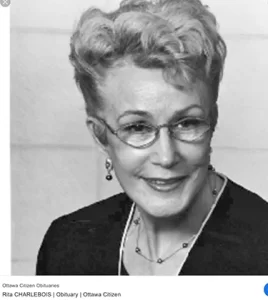Impaired Driving Cases: Rats Don’t Drive
Impaired driving prosecutions require expert testimony grounded in human physiology, not animal studies. Occasionally humour works in court, but it must be used judiciously!
I had the honour and privilege of working with Rita Charlebois for many years at the Centre of Forensic Sciences in Toronto. She was one of the top alcohol experts in Ontario at the time. She was a tall, gracious and elegant woman who had just a slight French Canadian accent. She was one of my mentors and taught me a lot about how criminal court actually works.
The Defence Challenge in an Impaired Driving Trial
 In one of her criminal impaired driving cases, the defence lawyer was going through her curriculum vitae on the stand and was lauding his defence alcohol expert instead. The defence went on and on about how his expert had published over a hundred studies on the effect of alcohol on rats and other laboratory animals.
In one of her criminal impaired driving cases, the defence lawyer was going through her curriculum vitae on the stand and was lauding his defence alcohol expert instead. The defence went on and on about how his expert had published over a hundred studies on the effect of alcohol on rats and other laboratory animals.
“Why“, he demanded, “did you not publish any similar studies?”
Rita looked at the lawyer firmly and said politely,
“Because sir, rats don’t drive.“
Effective and succinct and it stopped any further line of questioning. As a junior forensic scientist at the time I probably would have responded a bit pompously something like:
“The pharmacokinetics and pharmacodynamics of alcohol in the rat are substantially different from humans and so would have little relevance in criminal court.”
Which would have gone way above the heads of the jury and the judge and would have invited further questioning and clarification. Sometimes a little humour is the best way of answering a question in court.
Why Human Studies Matter in Impaired Driving Cases
Rita’s response illustrated a fundamental principle that applies equally to criminal impaired driving prosecutions and civil cases involving personal injury or overserving liability: forensic evidence must reflect human biology and behaviour, not laboratory animal models.
The differences between rat and human alcohol metabolism extend far beyond simple scaling. Rats metabolise alcohol at rates substantially different from humans, exhibit different patterns of absorption and elimination, and demonstrate impairment responses that don’t translate reliably to human driving performance. When expert witnesses rely on animal studies to draw conclusions about human impairment in impaired driving cases, they introduce scientific uncertainty that undermines the reliability of their testimony.
At Wigmore on Alcohol, this principle guides all forensic analysis and expert testimony. Whether evaluating blood alcohol concentrations in personal injury litigation, assessing impairment timing in overserving liability claims, or providing expert opinions in criminal impaired driving matters, we rely exclusively on peer-reviewed human studies and established methodologies validated in human populations.
The Art of Courtroom Communication
Rita’s elegant response also demonstrated another crucial skill for expert witnesses: the ability to communicate complex scientific concepts clearly and memorably. In impaired driving cases, juries and judges need to understand technical evidence about alcohol absorption, elimination rates, blood alcohol calculations, and impairment assessment. When experts lose their audience in technical jargon, even scientifically sound testimony loses its persuasive power.
Effective expert testimony requires:
- Clear, accessible language that avoids unnecessary jargon
- Direct responses that address the specific question asked
- Appropriate use of analogies or examples that resonate with lay audiences
- Confidence in defending methodological choices without defensiveness
- Understanding when brevity serves better than elaborate explanation
Over 700+ cases of testimony experience across Canadian courts has reinforced these lessons. Whether facing cross-examination in criminal impaired driving trials or presenting findings in civil personal injury cases, the most effective experts combine rigorous scientific methodology with clear, compelling communication.
No Animal Studies
In addition, she inspired me to include only human studies in my books on forensic toxicology and to rely on only human studies in court. This commitment ensures that every opinion offered in impaired driving cases, every calculation of blood alcohol concentration, and every assessment of impairment timing reflects the best available evidence from human research.
The relevance of this principle extends beyond criminal prosecutions. In personal injury cases where alcohol-related impairment plays a role, courts need expert testimony based on how alcohol actually affects human judgment, reaction time, coordination, and decision-making. Animal studies, regardless of their scientific merit in other contexts, simply cannot provide this foundation.
Expert Witness Services for Impaired Driving Matters
Wigmore on Alcohol provides forensic toxicology expertise for both criminal and civil matters involving alcohol impairment. Our services include:
- Blood alcohol concentration analysis and calculations
- Impairment timing assessments for accident reconstruction
- Evaluation of absorption and elimination patterns
- Expert testimony in personal injury and overserving liability cases
- Review and critique of opposing expert opinions
- Consultation on case strategy and evidence evaluation
Contact us for a free forensic evaluation now!
Every opinion we offer rests on human studies, court-accepted methodologies, and decades of experience in Canadian courts. We understand both the science of alcohol toxicology and the art of presenting that science persuasively to judges and juries.
Whether you’re prosecuting or defending an impaired driving case, pursuing or defending a personal injury claim involving intoxication, or addressing overserving liability questions, the quality of your expert witness can determine your outcome. Rita Charlebois taught that lesson with grace, humour, and unwavering commitment to scientific validity—principles that continue to guide forensic toxicology practice today.
Impaired driving - courtroom lesson FAQs
What qualifies someone as an impaired driving expert witness in Canada?
An impaired driving expert witness is typically a forensic toxicologist or alcohol expert with formal education in pharmacology, chemistry, or forensic science, and extensive courtroom experience interpreting blood alcohol evidence and impairment patterns in human subjects.
Why are human studies essential in impaired driving cases?
Human studies accurately reflect how alcohol affects judgment, coordination, and reaction time in drivers. Animal studies, like those involving rats, have different metabolic rates and behavioural responses, making them scientifically unreliable for court testimony about human impairment.
How does alcohol affect driving ability in measurable ways?
Alcohol slows reaction time, impairs motor coordination, narrows attention, and reduces decision-making capacity—all critical to safe driving. Forensic toxicologists use human data to quantify these effects in terms of blood alcohol concentration (BAC) and observable behaviour.
Can animal research be used in impaired driving court cases?
No. Courts require evidence based on human physiology and psychology. Animal studies may provide background research but are not admissible or relevant in determining human impairment levels or driving ability.
5. What does an impaired driving expert do during a trial?
An expert explains scientific concepts to the court—such as alcohol absorption, elimination, and impairment timing—and provides opinions on whether a defendant’s BAC or behaviour indicates impairment under Canadian law.
How do experts calculate blood alcohol concentration (BAC) in court cases?
Experts use validated human pharmacokinetic models to estimate BAC based on known variables such as drinking patterns, body weight, time intervals, and elimination rates. These calculations must align with peer-reviewed human data.
What makes expert testimony effective in impaired driving cases?
Effective testimony combines rigorous scientific accuracy with clear, accessible communication. Experts must explain complex toxicology in plain language, respond succinctly, and remain credible under cross-examination.
What role does humour play in courtroom testimony?
Used carefully, humour can defuse tension and clarify complex points. For example, the phrase “rats don’t drive” highlights the irrelevance of animal studies in a way that’s memorable and scientifically sound.
How does forensic toxicology contribute to personal injury and overserving cases?
Beyond criminal trials, forensic toxicologists assess alcohol’s role in accidents or overserving liability. They reconstruct impairment timelines and determine whether alcohol consumption likely contributed to an injury or negligent act.
10. Why choose an expert who relies exclusively on human data?
Experts using only human data provide testimony grounded in real-world, scientifically valid evidence. This ensures their opinions meet legal admissibility standards and carry greater weight with judges and juries.
Recent News

Trials of A Forensic Toxicologist: Cross-Examinati...
Cross-examination represents the ultimate test of expert witness credibility, as the great legalist John Henry...
Read More
What Kind of Expert Testimony do You Provide in th...
Testimony skills in the courtroom define whether an expert witness succeeds or struggles in legal...
Read More
What Good are Defence Counsel Experts Anyways?
Defence counsel and their expert witnesses play a crucial role that I didn’t always appreciate....
Read More
Forensics Expert Witness: Courtroom Testimony Tips...
Forensics expertise and effective courtroom testimony go hand in hand when presenting evidence in personal...
Read More